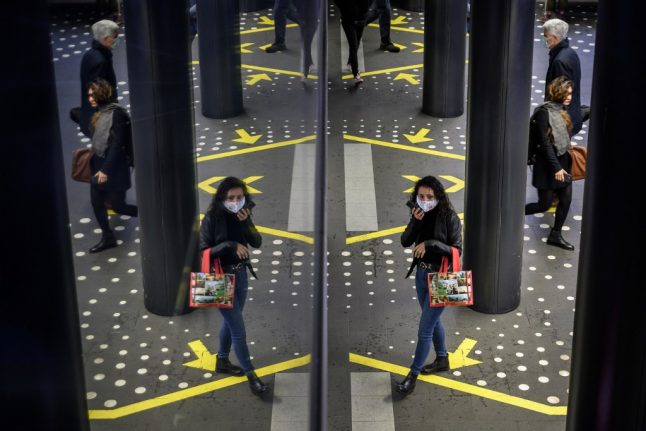From paying bills to wearing masks, there’s a lot set to change this month.
Have we missed anything important? Get in touch at [email protected].
Gender equality
The reformed Federal Act on Gender Equality went into force on July 1st.
It gives Switzerland's largest companies one year to monitor the salaries of their employees to detect any gender-based wage discrimination.
Pay a bill with a QR code
Keeping up with all your bills in Switzerland is hard even for native Swiss – but especially tough if you don’t speak the language.
Fortunately that will be easier from July onwards, with QR codes appearing on bills sent to mailboxes all around Switzerland.
QR codes will gradually phase out existing bills, letting you pay with just one click.
Bill recipients simply scan a QR code with their phone and the payment can be made by clicking one command.
New international train connections to begin on July 4th.
As of Saturday, the high-speed TGV Lyria starts operating several trains starting from Swiss cities of Geneva, Lausanne, Basel and Zurich, to Paris and Marseilles in France.
Also in July, some services will be suspended or modified due to repair works.
Masks in public transport
In a press conference on Wednesday, the Swiss government announced a surprising turn. The Federal Council announced a mask requirement for public transport – more than two months after masks were made compulsory in neighbouring countries.
The mask requirement will be enforced from Monday, July 6th.
The mask requirement will apply in all trains, trams, buses and on cable cars and ski lifts. Transport on ships and ferries will also be included.
More information can be found at the following link.
Everything you need to know about Switzerland's new compulsory mask requirement
Tourism from July 20th
Since June 15th, travel between most European countries has been re-opened, but restrictions are still in place for travellers from outside Europe from entering Switzerland.
The EU announced that 15 so-called 'safe countries' would again be allowed in from July 1st, with the notable omission of the United States.
Late on Wednesday, July 1st, Switzerland indicated it would follow the EU's decision – however this would not be until July 20th.
A representative of the Swiss State Secretariat for Migration told The Local on July 1st that from July 20th, “Algeria, Australia, Canada, Georgia, Japan, Morocco, New Zealand, Rwanda, South Korea, Thailand, Tunisia and Uruguay and the EU states outside the Schengen area (Bulgaria, Ireland, Croatia, Romania and Cyprus) from the list of high-risk countries.”
Where can I travel?
While the majority of European borders are again open to Swiss travellers, Finland is still to open. That will take place on July 14th.
There are also plans for reciprocal arrangements with some of the above countries – so stay tuned to see whether these are finalised in the coming days.
Quarantines from certain countries
Switzerland announced on July 1st the imposition of quarantines on arrivals from ‘high risk’ countries, however a list of those countries has not yet been provided.
According to Swiss media sources, Serbia and Montenegro – along with possibly Sweden and Kosovo – may be subject to quarantines on arrival.
The quarantine period will last for ten days.
Affected people will be informed on planes, coaches and at the borders, and must register with the local authorities once in Switzerland.
Anyone who appears to be sick must not be allowed to board buses, trains or flights to Switzerland.



 Please whitelist us to continue reading.
Please whitelist us to continue reading.
Member comments